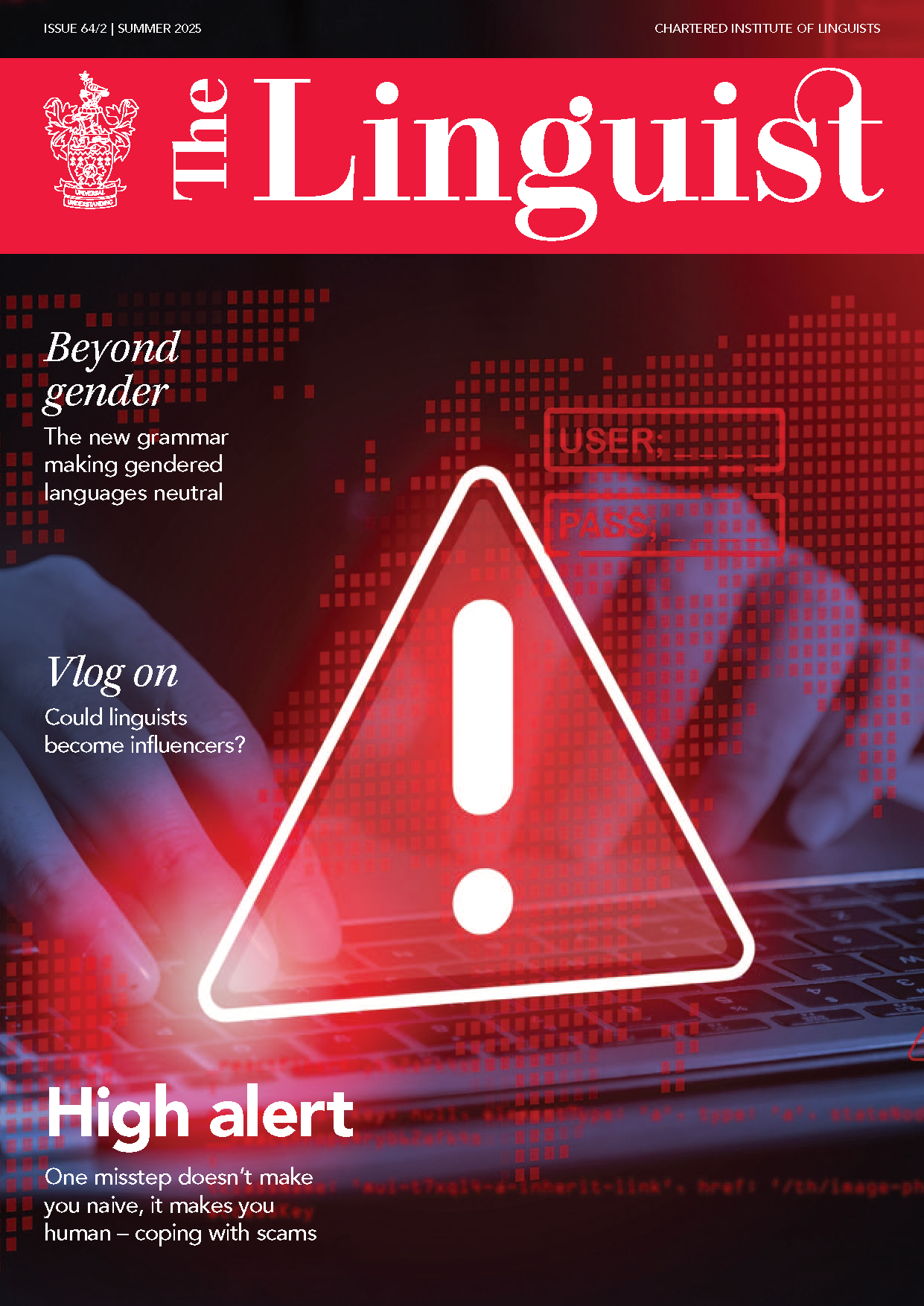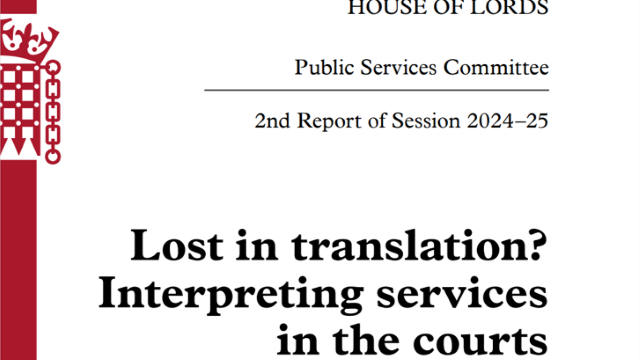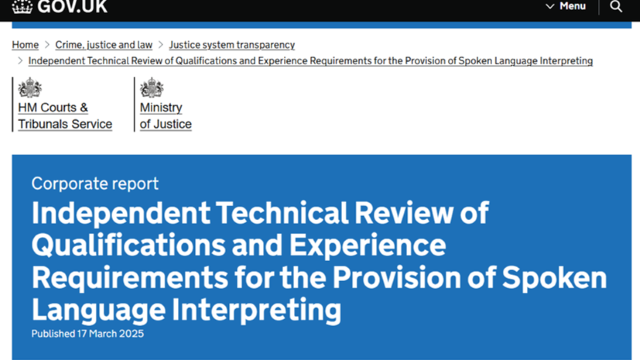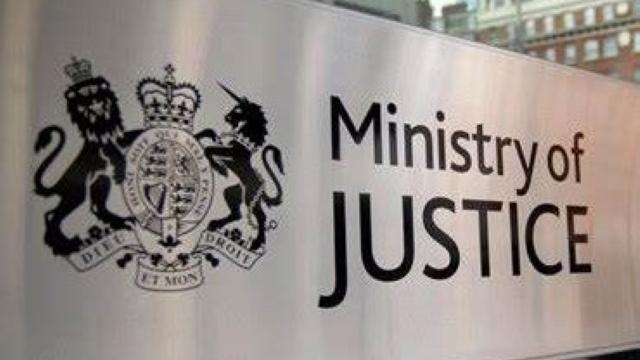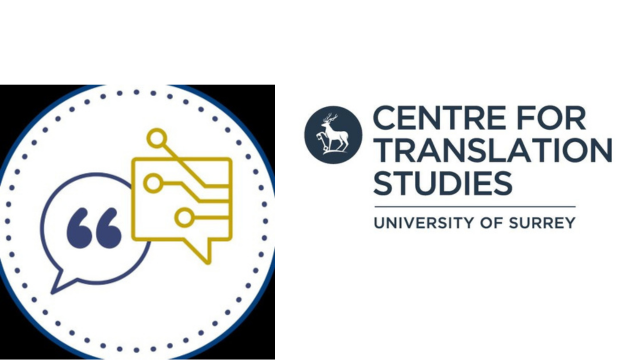-
QUALIFICATIONS
- For Linguists Worldwide
- For UK Public Services
- Preparation
- Policies & Regulation
-
MEMBERSHIP
- Join CIOL
- Membership grades
- NEW for Language Lovers
- Chartered Linguist
- Already a member?
- Professional conduct
- Business & Corporate Partners
-
LANGUAGE ASSESSMENTS
- English
- All Other Languages
-
CPD & EVENTS
- Webinars & Events
- CIOL Conference Season 2025
- Networks
- CIOL Mentoring
-
NEWS & VOICES
- News & Voices
- CIOL eNews
- CIOL Awards
- The Linguist Magazine
- Jobs & Ads
-
RESOURCES
- For Translators & Interpreters
- For Universities & Students
- Standards & Norms
- CIOL & AI
- All Party Parliamentary Group
- In the UK
- UK Public Services
- Find-a-Linguist
Alert: Spam emails

We have received reports from several members, who have been contacted by various email addresses claiming to offer "member lists" or "registrant data" from CIOL's Find a Linguist Directory for sale.
Thank you to those members for bringing this incident to our attention. We want to address these concerns and provide some important clarification.
Key Points
Data Security: There is no evidence of any security breach or unauthorised access to our systems. These contacts appear to be working solely from publicly available information on the Find a Linguist directory which is on the CIOL website.
Public Directory Information: The Find a Linguist directory has always been designed as a public resource, to help potential clients verify and connect with our highly qualified members. The information displayed (such as language pairs, specialisations and an email address) is intentionally public and searchable, although the whole list cannot be accessed directly and it requires selection of languages and a further click onto a named member to access an email address.
Unverified Claims: These solicitation emails demonstrate how valuable CIOL members are seen to be. However, claims such as offering "1,000+ contacts" clearly show whoever is behind this doesn't understand our membership base, as we have far more members than this suggests. Further, given accessing an email address requires several steps on Find a Linguist, it is likely that these emails are ‘suggestive’ and designed to generate a click or some further entrapment with the minimum effort on the part of the originator.
Varied but non-credible emails: One of the most reliable tests of an email is the email address it comes from – and this can be masked but usually not fully hidden. Although this campaign has used varied emails, they all share the characteristic of not seeming credible when the actual address is viewed.
Speculative and wrong-headed: the final point is that these emails are clearly wrong-headed in that it is unlikely that CIOL members would want a list of other CIOL members. In this respect the emails (like many of their type) are clearly speculative and join the many other offers of lists which many people receive in any given week. Spamming is a numbers game, is often at least partially automated and the costs of doing it are very low, so often little craft or consideration is given to the incremental attempt, as so many are generated in any given week.
What You Should Do
- Do not respond to these emails or provide any payment or banking information
- Report as spam or junk in your email client and block these sender addresses
- Report the incident to Action Fraud: https://www.actionfraud.police.uk/reporting-fraud-and-cyber-crime
- Report phishing emails to: report@phishing.gov.uk
Your Options regarding Find a Linguist
We continue to recommend maintaining your presence on the directory, as legitimate clients regularly use it to find qualified linguists. However, if you have concerns about your public listing, you can modify or remove your Find a Linguist profile through your myCIOL account.
Most of our members find the directory listings a valuable way to attract clients, but it is important to use the usual caution when dealing with unknown contacts – check the email address, look out for signs of entrapment, don’t click links, don’t share personal information or banking details unless you are confident in the contact.
We know that scamming organisations have been targeting CIOL and ITI members. But it is important to recognise that scammers are targeting all organisations and every one of us all the time. This is simply a sad fact of the modern world. In response though, we have been working closely with ITI to raise common awareness and help all of our members to stay vigilant.
The following CIOL resources provide useful guidance:
You may also have noticed that we featured an article on some of these issues in the latest edition of The Linguist, reflecting our ongoing commitment to keeping members informed and aware of potential risks from increasingly sophisticated bad actors.
The specific article 'Perfect Trap' from Charlotte Hale-Burgess is also available in blog form here
If you receive similar solicitation emails, please forward them to us at membershipteam@ciol.org.uk so we can monitor the situation, raise awareness and help protect the entire CIOL community.
Other recent Spam and Scam Alerts for Info
Member email
I'm writing to bring to your attention a common scam for translators. To save time, please see the the following thread on Reddit:
Translation job scam seeking someone to translate a movie script English > Brazilian Portuguese
I have now been approached twice by e-mail, by people claiming to be professionals in need of a translation. The first time I fell for it and wasted four days of work translating a document for them. Fortunately I wasn't so naïve as to make the IMF code payment. The second time, just yesterday, I wasn't going to be fooled.
Member email
For about the last 6 months, the number of unsolicited emails I receive from companies claiming to be translation and/or interpretation companies has risen sharply. They usually say that they are "impressed by my credentials", without even writing to me directly (it usually greets me as "dear linguist", "dear interpreter", etc.), and without saying where they found my contact details. When I ask them where they found my details, they usually reply that they found them on the CIOL website.
The problem is not just this type of unsolicited emails, it is the fact that these are mostly scams, and/or proposing outrageous rates. I received an email today that was booking me (as if I were a staff member) for an interpretation assignment by phone (a service that I do not provide), for a rate of £25/hour. I replied that they should delete my contact details from their directory as I am not part of their staff or freelancer interpreters. I usually also tell them that, as a European citizen, I am protected by the GDPR. It is usually sufficient to make them cease.
Email purporting to be from the NHS
FROM:St. Thomas' Hospital UK <chayajadekl90@gmail.com> NOTE clearly incorrect email address
Sent: Wednesday, February 26, 2025 12:57:55 PM
Subject: TRANSLATORS / INTERPRETERS JOBS
JOBS Ref: - Sth/T/I-534803/UKNHS
INTRODUCTION
St. Thomas' Hospital UK is a large NHS teaching hospital in Central London, England. It is one of the institutions that compose the King's Health Partners, an academic health science Center. Administratively part of the Guy's and St. Thomas' NHS Foundation Trust, together with Guy's Hospital and King's College Hospital, it provides the location of the King's College London GKT School of Medical Education.
It is ranked amongst the best Ten (10) hospitals in the United Kingdom with 840 beds. The hospital has provided healthcare freely or under charitable auspices since the 12th century. It is one of London's most famous hospitals and a prominent London landmark – largely due to its location on the opposite bank of the River Thames to the Houses of Parliament.
DESCRIPTION: We are currently recruiting and employing the services of TRANSLATORS / INTERPRETERS with relevant experience in the below listed languages. etc
Response to CIOL from the NHS/Guy's & St Thomas's
Thank you for bringing this to our attention. I’m sorry you and your members have received these messages. We have had problems previously with fake job adverts targeting medical professionals primarily and have this post on the Trust website to warn people (scroll to the bottom of the page to see this message).
As this is a slightly different “campaign”, we have put a post on the Trust’s LinkedIn channel to flag that these are not from us. I’d be grateful if you can share this with your members, advising them that this is indeed a scam and they should not share their personal information or send any money. There are details at the bottom about how we advertise vacancies on reputable job sites and our website (never through direct emails). Also – see below advice from NHS Cyber Security. They say that a recipient of fake job emails such as these should report them to NHS Cyber Security:
For reporting to NCSC, this can be done by anyone and is typically best done by the end-user with the most context via: https://www.ncsc.gov.uk/section/about-this-website/report-scam-website
Also, the following link will be useful for your members to report via NCSC: https://www.ncsc.gov.uk/collection/phishing-scams
Please also advise the victim who contacted you about this scam to report it to the police, in a seperate email so they are made aware.
More
The Chartered Institute of Linguists (CIOL), Incorporated by Royal Charter, Registered in England and Wales Number RC 000808 and the IoL Educational Trust (IoLET), trading as CIOL Qualifications, Company limited by Guarantee, Registered in England and Wales Number 04297497 and Registered Charity Number 1090263. CIOL is a not-for-profit organisation.

